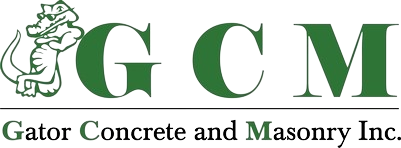Tampa’s construction scene right now—let’s be honest—it’s running full speed. High-rises downtown, subdivisions sprouting up on the outskirts, commercial projects packed into busy corridors. Tight deadlines everywhere. Developers and General Contractors (GCs) are juggling crews, permits, suppliers, and schedules that don’t forgive delays. That’s where subcontractors step in. They’re the backbone. They carry out the heavy lifting that turns drawings on paper into solid structures standing on Florida soil.
Here’s the thing: if you’re a GC or developer, working smarter with your subs isn’t optional. It’s survival. Get it right and projects flow smooth, timelines stay on track, and budgets don’t bleed. Get it wrong and you’re chasing your tail—missed inspections, blown budgets, unhappy clients.
So today as GCs and Developer, we’re talking straight about tips on working with Tampa Subcontractors. What makes it work, what derails it, and how to build lasting partnerships that actually move the needle.
Know the Local Tampa Market
You can’t just treat Tampa like anywhere else in the country. This city’s got its quirks. Let’s start with the humidity—it doesn’t just make summers rough on crews, it affects concrete cure times, material storage, and even the way block walls breathe. Skip that understanding, and suddenly you’ve got cracks and failures you didn’t budget for.
Then there’s hurricanes. Peak season hits hard and fast. You can’t ignore that. Storm prep eats into schedules, delays shipments, and demands backup plans. That’s why local subcontractors have an edge. They’ve been through it. They know how to secure a site when a Category 3 is swirling out in the Gulf. They know how to work around supply chain hiccups that happen after storms when everyone’s scrambling for the same materials.
Tampa soils? Yeah, not all of it’s friendly. Some areas have sandy base that shifts, some pockets have clay holding water, others are just flat-out tough to grade. Local grading subs don’t just move dirt—they know where it wants to move back. Outsiders often miss that. They chase bids too low and end up spending twice as much fixing it.
And here’s the kicker: bringing in out-of-town crews? It’s rarely cheaper. You might think you’re saving, but add hotel bills, per diem, travel, and the headaches of not knowing local code enforcement officers—and suddenly your “savings” vanish. Local subs, the ones you can trust, they’re not just more efficient, they’re cost-smart.
Vetting Subcontractors Properly
Let’s not sugarcoat it. Not all subs are equal. Tampa’s market is hot, and everybody with a truck and a crew calls themselves “experienced.” But you’ve got to dig deeper.
- Licenses and insurance – Florida’s strict, and for good reason. Check their paperwork. Liability, workers’ comp, and trade licenses must be current. Skip this and you’re carrying their risk.
- Certifications – Some jobs call for specialized training. OSHA safety courses, concrete certifications, equipment handling—make sure they’re not just talking a good game.
- Reputation – Reviews, references, word-of-mouth from other GCs. Tampa’s construction world is tight-knit. Bad subs get found out fast.
- Past projects – Don’t just look at pictures. Visit sites if you can. Walk the slabs, check the finishes, see if they’ve delivered on jobs similar to yours.
And one more thing: specialization matters. If you need CMU block walls, you want a sub that does them week in and week out—not a jack-of-all-trades fumbling through. Same with grading or underground retention drains. Pros make the difference between work that passes inspection the first time and work that’s a punch-list nightmare.
Clear Communication is Non-Negotiable
Here’s where most jobs fall apart. Not on the site, but in the emails, the phone calls, or the lack of them. Communication—or the failure of it—makes or breaks projects.
Set expectations before anyone touches the dirt. Scope, deadlines, reporting—get it all in writing. Daily updates? Weekly check-ins? Decide early and stick with it.
And listen, construction management tools aren’t just fancy software. They’re lifesavers. Tools that track schedules, deliveries, and manpower cut down on the “he said, she said” that causes friction. If you’re not using them, you’re leaving money on the table.
Avoiding miscommunication isn’t just about talking more—it’s about talking clear. Ambiguity is expensive. If a sub doesn’t know the spec, if they’re unclear on the timeline, you’re going to pay for it in delays and rework.
Build Strong Relationships, Not Just Contracts
Sure, contracts protect you. They matter. But let’s be real: paperwork won’t keep a project on schedule. Relationships will.
When you treat subs like partners, not just line items, they respond in kind. They show up, they hustle, and they look out for your interests because they know you’ll do the same. That kind of trust lowers turnover. It builds loyalty. And loyalty means fewer delays, fewer headaches.
Incentives help too. It’s not always about throwing more money. Sometimes it’s early payments, recognition, or giving them a heads-up on upcoming projects so they can plan their crews. Respect goes further than most GCs think.
The truth is, Tampa’s construction market is too fast-moving to keep cycling through new subs every project. The guys you can count on? They’re gold. Treat them like it.
Managing Timelines and Accountability
Tampa doesn’t wait. Projects move quick, permits have deadlines, and clients want keys in hand yesterday. Managing timelines with subs is a balancing act—you’ve got to be precise without being rigid.
Stagger your schedules. Don’t line up five trades to work the same space at once. Smart sequencing keeps jobs moving and prevents bottlenecks.
Hold subs accountable, yes. But don’t burn bridges while you’re at it. If deadlines are slipping, find out why. Sometimes it’s their crew, sometimes it’s material delays outside their control. A good GC balances accountability with fairness.
And remember—accountability starts with clear deliverables. If the sub doesn’t know what they’re being measured against, they’ll never meet it.
Safety and Compliance in Florida Construction
You can’t cut corners here. OSHA rules, Florida codes, Tampa inspectors—they’re watching. And after Surfside, safety laws are tighter than ever. Structural integrity isn’t negotiable.
Subs need to be aligned on every code, every inspection requirement. Don’t assume they know. Spell it out. Review safety protocols on site. Make it part of the daily routine, not an afterthought.
Post-Surfside laws have made it crystal clear: shortcuts won’t fly. If your sub isn’t up to code, you’re liable. And the fines? They’re no joke. Neither are the risks.
Build safety culture into every job. Hard hats, fall protection, equipment checks. It’s not just compliance—it’s protecting your people and your reputation.
Collaboration With Specialty Crews
General labor gets jobs moving, but specialty crews get them finished right. Think grading crews, concrete finishers, block wall installers. Each one brings expertise that saves time and prevents costly errors.
Specialty subs don’t just execute—they anticipate. They see problems before they happen. A grading crew might spot drainage issues that could drown a foundation later. A block wall installer knows how to adjust for Tampa’s tricky soils.
That’s where having go-to partners like GCM pays off. We don’t just show up and pour or stack. We bring 20+ years of experience in Tampa’s dirt and weather. We’ve seen the problems. We know the fixes. That’s value you can’t put on a line item.
Handling Payments and Contracts the Smart Way
Money can sour even the best working relationship if it’s not handled right. Clear contracts are your friend. Vague terms? They’re landmines. Spell out scope, schedule, payment terms, and deliverables.
Set up payment schedules that protect both sides. Progress payments tied to milestones keep subs motivated and ensure you’re not fronting the entire risk.
And document everything. Disputes happen. With clear paperwork, you’ve got backup. Without it, you’re just trading stories.
Long-Term Partnerships Over One-Off Jobs
One-off jobs keep you guessing. Long-term partnerships keep you steady. Building a roster of reliable Tampa subs isn’t just convenient—it’s strategic.
Consistency matters. When you work with the same subs across multiple projects, you cut learning curves. They know your expectations, you know their strengths. That synergy saves time and reduces surprises.
Here at GCM, we’ve worked alongside Tampa GCs for years. Those relationships mean smoother jobs, faster schedules, and fewer headaches for everyone. That’s the real payoff of thinking long-term.
Ready to Partner With a Trusted Tampa Concrete & Masonry Crew?
At the end of the day, these tips isn’t about reinventing the wheel. It’s about doing the basics right—knowing the local market, vetting carefully, communicating clearly, treating subs with respect, managing timelines, staying compliant, and building partnerships that last.
If you’re a GC or developer in Tampa and you’re looking for subcontractors who know the dirt, the codes, and the pace of this market—you don’t need to look far.
At Gator Concrete and Masonry Inc., we’ve been serving Tampa for over 20 years. From grading and drainage systems like ADS and underground retention drains, to demolition, block walls, tree stump removal (we dig out, not grind), site cleaning, and even sand removal after storms—we handle it all.
Ready to work with a crew that knows Tampa inside and out? Contact GCM today. Let’s build it right, let’s build it strong, and let’s keep your projects moving without the headaches.

